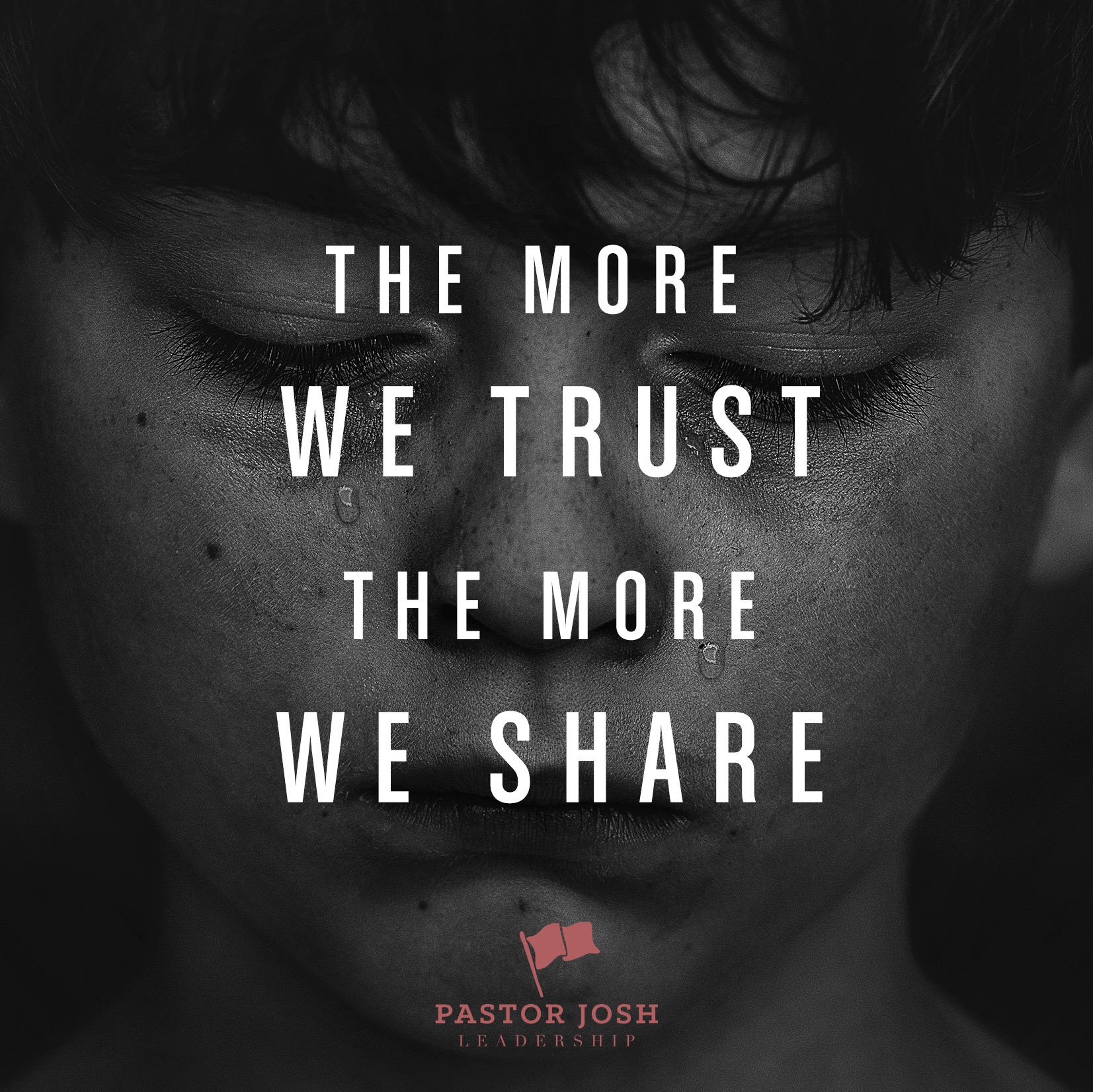




One of the deep cries in our culture is the need for authentic, real, genuine relationships. I love that social media allows me to be able to see how—and what—my friends are doing. I like to see what has transpired in their lives since the last time I saw them in person. However, the human need for authentic relationships is not met by how many social media friends I have, or by how many likes or comments I can generate on my latest post. Social media is a great supplement for human connection, but it cannot replace physical interaction. We are all designed for and want human connection, a connection with skin on, and you can’t fulfill that desire on a screen.
One thing you don’t normally see on the highlight reel of a social media timeline is vulnerability. Just a few moments ago I took 4 pictures of my coffee and spent probably 3 minutes working on the staging of that pic. Why? Perhaps I think that if I get the perfect angle or add the perfect filter, I can generate more likes and enjoy the 30 seconds of delight that it gives me. My life is not enhanced by that at all.
Last weekend I shared at a men’s breakfast with about 10 men. I shared a short message, then got really vulnerable and real with them about my journey. My heart was stirred, theirs was as well. There is something about sitting across them sharing the ups and downs of my walk. The equity I get from my post fails in comparison to the conversations at the breakfast. Vulnerability opens the door to the heart.
Here are a few thoughts on vulnerability:
1. Vulnerability is not emotional vomit.
Gossiping, complaining, and griping is not vulnerability. They are sins. There is a grave difference between describing another persons behaviors and talking about your feelings and the tensions you are dealing with. I can’t tell you how many times I’ve heard people justify gossip under the banner of “I’m just being real.” Maybe what you need to do is deal with the bitterness in your heart and be more self-controlled? Being vulnerable is about “you” not somebody else.
2. Transparency is sacred.
We all have issues. I don’t tell everybody everything, nor should you. There are things my wife knows about me that nobody else does. She is the only one who should know those things. If I tell everybody everything, then there is nothing sacred about my trust or my transparency. You need to develop trust before you share the deepest parts of your life. The more we trust, the more we share. As a rule, I only share deep things with people that can help me with deep things. We must have these people in our life. We were never meant to carry the weight alone.
3. Be real, and let them be too.
I’ve found that when I am authentic with people, it reciprocates.
When we are wrestling with an issue and we go to somebody about it, we are going for help. Sometimes believers are quick to impose the standard and not offer a hand to help. This is one of the issues we see with Jesus and the religious leaders. In most cases, Jesus had the same standard as the religious. The difference was that Jesus helped the person through the issue. Jesus didn’t point to the standard and tell the hurting to reach it, he lifted them to it. (See John 8:1-11)
When we don’t let people be real we force them to be fake.
Being vulnerable is important. Knowing the difference in when and whom to share with is vital. When we are able to open up in areas that we are hiding due to shame, we will start to get freedom in that area. Be prepared: to be vulnerable where you need to be, and gracious when someone deems you the person they see fit to be vulnerable with.
[if you have this time this is a powerful video a Ted Talk on The Power of Vulnerability by Brene Brown]

